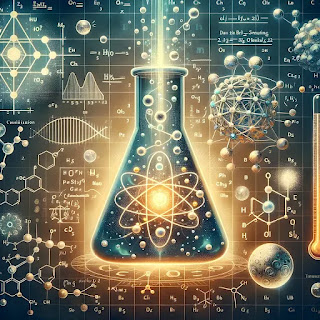Catalysis, The Engine of Chemical Reactions
In the world of chemistry, the driving force of most chemical reactions is Catalysis. Catalysis has been quite useful and essential to us as humans and even plants and animals as it plays a vital role in the body system of humans and plants as well.
Catalysis enjoys a vast spectrum of applications ranging from speeding up metabolism in plants and animals down to fast-tracking the production and manufacturing of materials and essential products in factories and industries.
What is Catalysis?
You might be wondering what this "magic" called Catalysis is and what it's all about, well the answer is very simple. Catalysis is simply the process of slowing down or speeding up the rate at which chemical reactants undergo a chemical reaction by the integration of a catalyst.
A Catalyst is a substance that speeds up or slows down a chemical reaction without undergoing any change. It facilitates the reaction by reducing or increasing the Activation energies of the reactants involved to speed up or slow down the reaction as intended.
Types of Catalysis
Catalysis occurs in different ways and has distinctive features from each other written below are some types of Catalysis categorized by their occurrence and features.
Homogeneous Catalysis
These are catalysts that are affected by the integration of catalysts. In this type, the catalyst exists in the same state as the reactants. The application of transition metal complexes in some organic reactions is a typical example of Homogeneous Catalysis.
Heterogeneous Catalysis
As you can decipher from the word "heterogeneous", this type of catalyst is done by a catalyst that is in a different state from that of the reactants. An application of this type of Catalysis is in the detoxification of harmful gasses in the exhaust system of cars, where Solid catalysts are used to catalyze the detoxification of toxic gasses.
Enzymatic Catalysis
This type of Catalysis is done by special catalysts called Enzymes. It occurs naturally in living organisms. Enzymatic Catalysis is very vital in living organisms. An example of this type of Catalysis is Metabolism in plants and animals.
Benefits of Catalysis
Large-scale industrial production
The production of some materials and products is relatively slow due to the slow reaction of the chemical processes that are needed to produce them. Producing such materials on a large scale is not only time-consuming but much more expensive.
The integration of catalysis in the industrial manufacturing of products has helped to minimize cost and saved a lot of useful time while facilitating the large-scale production of materials. An example is the use of the catalytic process known as the Haber-Bosch process for the large-scale production of Ammonia.
Environmental Preservation
Catalysis is not only applicable when there is a need to minimize the cost of production and reduce production time, it has also helped preserve our Environment and keep the atmosphere less toxic an example is the Catalytic converters in the exhaust system of cars, machines, and transport vehicles that detoxifies and reduces the amount of greenhouse gasses being released Into the atmosphere.
Challenges and Innovations of Catalysis
Despite the improvements and developments that have happened in the study of Catalysis, there is still some persistence of bottlenecks in some catalyzation which includes the deactivation of Catalysts, selection of suitable Catalysts, and sustainable Catalysis. However, Scientists have embarked on research to develop more catalysts and catalytic procedures that are more efficient and less vulnerable to the bottlenecks that have been listed above.
Possible Future Developments
One of the possible developments of Catalysis in the Future is the integration of Catalysis into Green technologies owing to its ability to facilitate the detoxification and reduction of greenhouse gasses as research has already been conducted to find ways of using Catalysis for the production of renewable energy and capturing of carbon in the atmosphere.
The usefulness of Catalysis and the roles it has played so far in the advancement and development of science and technology can not be overemphasized. Even as living things, we can't do without Catalysis as the enzymes in our body play a vital role in the chemical reactions that occur daily in our body. So far, the integration of Catalysis in industrial production and environmental preservation has positively impacted our world today. Written so far in this article are some basic things you need to know about Catalysis as well as its types and Applications in today's world. I hope you gained so much from this informaton.
Image by: Pixabay.com

